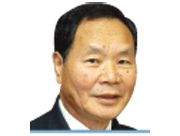Political experiment in Korea
Koreans are experiencing an extraordinary three-way presidential race among Park Geun-hye of the ruling Senuri Party, Moon Jae-in of the opposition Democratic United Party (DUP) and independent Ahn Cheol-soo. The election is two months away, but it is too early to predict who will be the next president.
Polls show as of this week that if Moon and Ahn were unified in a single candidacy, either of them would defeat Park. But it is more likely that Park would win if the current three-way competition continues, as support for Moon and Ahn overlaps significantly in the electorate.
Park is generally favored by conservative voters in their 50s and older, while Moon and Ahn of the opposition camp are largely preferred by open-minded voters in their 20s and 30s. Those in their 40s are split, and this group may well determine the outcome of the election. No candidate can win without the support of independents, who constitute a vast majority of the electorate in Korea.
What is unique about this year’s election is the phenomenal surge and sustainability of Ahn Cheol-soo’s popularity in the polls. This reflects people’s discontent with the established system of party politics, which is corrupt, inefficient and doing nothing good in the public’s perception.
The three candidates have announced their policy platforms, which do not vary much from each other. They all call for political reform as the number one priority. Ahn rejects the continuation of the party system as practiced in Korea over the past half a century. He has said political reform is more important than regime change.
Another common campaign pledge is “economic democratization,” by which the government would regulate conglomerates for their social responsibility and promote small businesses to create jobs, while increasing welfare. However, no candidate has yet offered a good revenue plan for the welfare programs.
As the three pursue similar policies and bring into their campaigns prominent personalities who were previously affiliated with opposing camps in the name of national integration as well as less known new faces who may appeal to specific voting blocks, the ideological and regional divide is becoming blurred.
Ahn has said political reform is a prerequisite for unifying with the DUP nominee. Park is preparing to compete with a single unified candidate, who most pundits think will emerge by the middle of November. She would prefer to compete with Moon rather than Ahn in a two-way race. However, there is a strong possibility that Ahn will run to the end as an independent.
The three candidates each have strengths and vulnerabilities. Park’s strength lies in the solid support of the conservative voters who value her stance on principles and her accomplishments as she has twice rescued the party from crisis. On the other hand, she is seen as an old-fashioned, authoritarian leader who often makes decisions without consulting others or listening to the people. Unlike in the past, her father, former coup leader and President Park Chung-hee, whose deeds are still subject to mixed judgment is no longer a political asset to her. Gender, however, is not a handicap.
Moon’s advantage comes from his friendly image as the guy next door who can easily mingle with the people. He is a new face in politics who was selected through a primary competition. The fact he served as chief of staff for former President Roh Moo-hyun works for and against him: It shows he has experience in government but it also holds him responsible for things that did not go well during that administration. Support from Roh’s followers is helpful but also discourages other voters.
Ahn’s strength is boosted by his non-involvement in politics in the past and his remarkable success as a doctor, a venture businessman and a university professor, who has led a relatively clean life. He is supported by those who disapprove of both the Saenuri Party and the DUP. Ahn’s weakness is that he does not have a strong organization and he is assisted by a group of amateurs with little campaign experience. The younger generation that supports him often doesn’t vote.
On security and North Korea, all three candidates stand left of the incumbent president, in the order of Moon, Ahn, and Park from the left. They all say peace and security are essential to the economy and welfare. Park speaks of a peace settlement through trust building between Seoul and Pyongyang. Ahn says peace must be supported by security but favors improved relations with the North. Both Park and Ahn are yet to announce a detailed North Korea policy.
Moon is most specific in terms of what he would do with North Korea. If elected, Moon would meet with North Korean leader Kim Jong-un in his first year in office to discuss the establishment of a North-South Economic Coalition that would benefit the South far more than the North. He said he would protect the Northern Limit Line (NLL) and build a strong security force to prevent any provocations in the West Sea.
Moon’s position on the NLL was announced after a Saenuri Party member claimed to have read a transcript of a one-on-one meeting between Roh Moo-hyun and Kim Jong-il in October 2007, in which Roh said the South would give up its claim on the NLL. Moon and other former officials of the Roh administration denied the allegation.
If this allegation proves true, it would hurt Moon and would probably be more helpful to Ahn than to Park. Ugly smear campaigns are expected to appear in the coming weeks, unless the three find a better platform to increase their electoral chances. What’s your take?
The writer is a research professor of the Ilmin Institute of International Relations at Korea University and a visiting professor at the University of North Korean Studies. He is also an ICAS fellow. Reach him at tong.kim8@yahoo.com. <The Korea Times/Tong Kim>























































